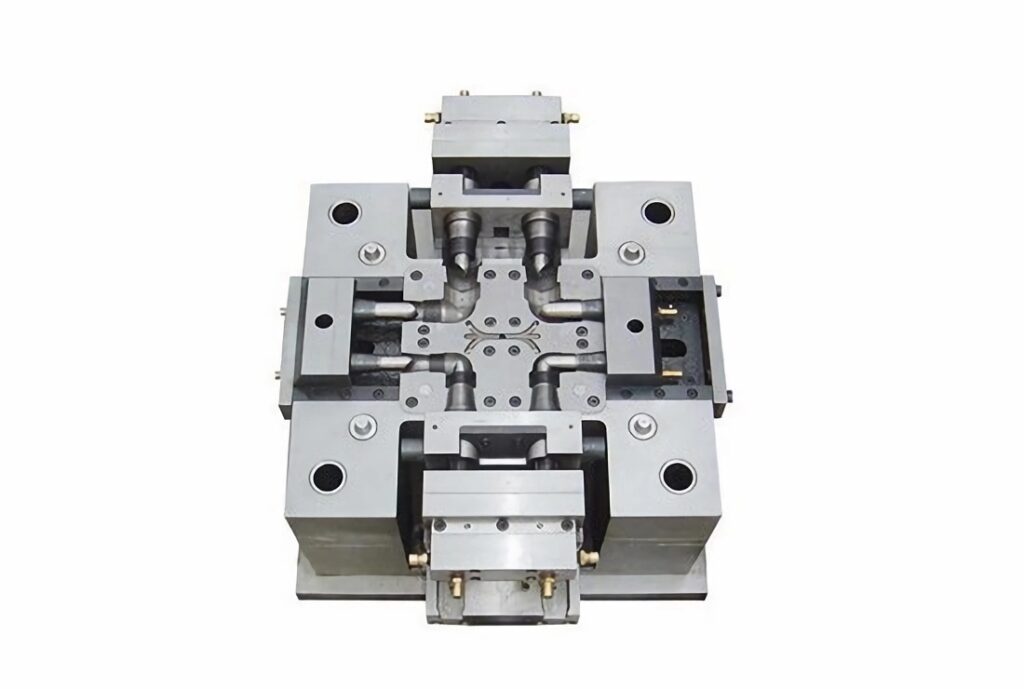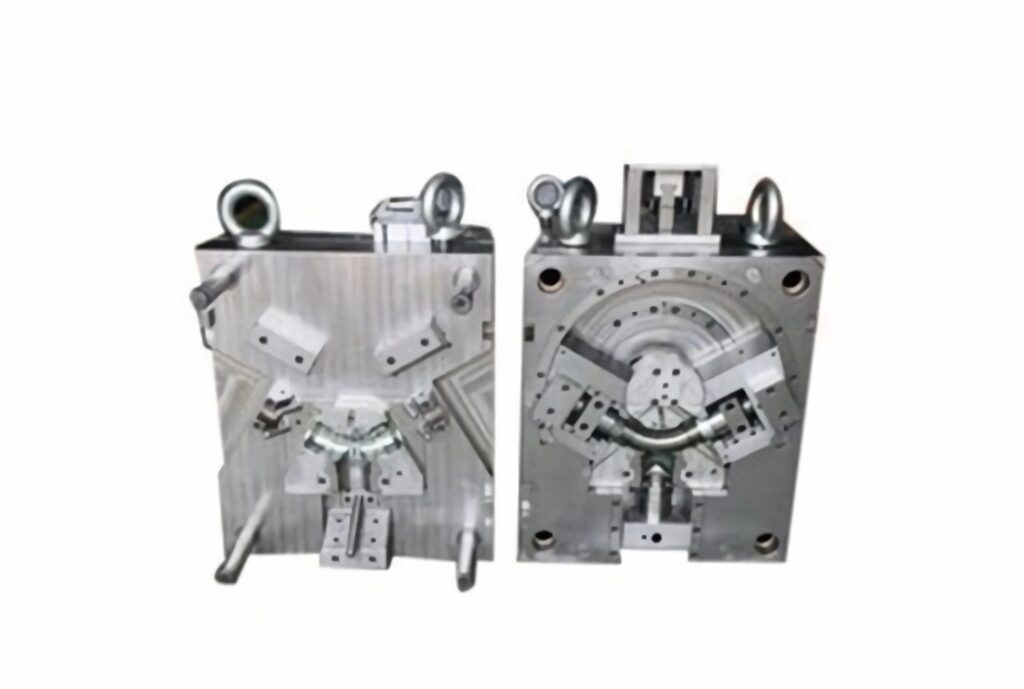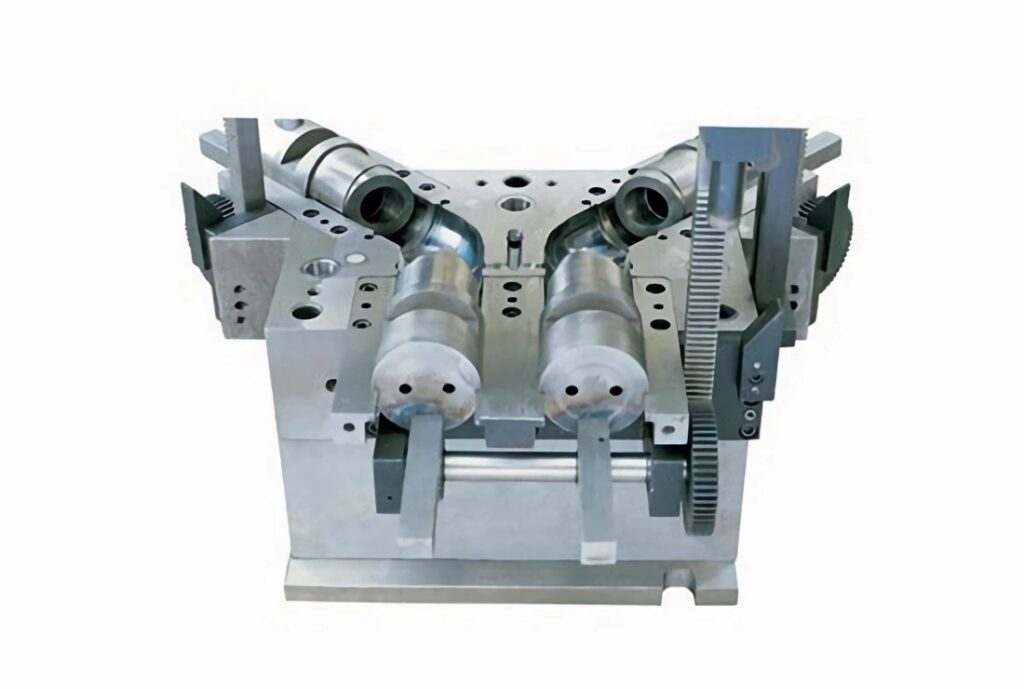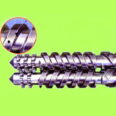Pipe Fitting Moulds Introduction – a critical component of the pipe fitting process responsible for shaping metal into the correct form for construction projects. With various molds available, it is essential to understand the basics of each kind to make an informed decision about which type of mold is right for your project.

Pipe fitting molds fall under three categories: extrusion, die casting, and forging. Extrusion molds, made from metals, plastics, and composites, are typically used to create smaller pipe fittings such as elbows, tees, and reducers. Die casting molds, made from metals, generate larger pipe fittings like flanges and couplings. Forging molds, also made from metals, create the most common type of pipe fitting.
Each type of mold has its own set of benefits and drawbacks. Extrusion molds are the most affordable and versatile option. Die casting molds are the most durable and can withstand high temperatures and pressures. Forging molds are the most accurate and produce fittings with the lowest level of defects.
The various varieties of pipe fitting molds are designed to perform different jobs. HDPE pipe fitting molds are made to extrude HDPE pipes, while PVC pipe fitting molds produce PVC pipes. P trap molds create a P trap for the drainage system. Some molds are specifically designed to forge fittings, such as elbow fitting molds, tee fitting molds, and reducer fitting molds.
In conclusion, understanding the different types of pipe fitting molds is crucial in selecting the right mold for your project. With the right mold, you can ensure the accuracy, durability, and affordability of your pipe fittings.
PVC Pipe Moulds: A Comprehensive Guide

When it comes to pipe fitting moulds, ABS pipe fitting moulds are a significant type that is widely used in water supply systems. These moulds are designed to join two pipes of different diameters and wall thicknesses, and they feature a specific type of flange known as an ABS flange. This flange connects the pipe to a fixture, such as a toilet or a faucet.
Compared to thread fitting moulds, pipe fitting moulds offer several advantages. They do not require any extra tools for fixing the pipes, and there is no limitation on thread size. This makes them easy to use with any size of pipes, and they are also easier to operate and handle.
Choosing the right pipe fitting mould is crucial for ensuring that your pipe fittings meet all your needs and are of the highest quality. With advancements in technology, pipe fitting moulds are now being designed to perform multiple functions, providing you with a wide range of options to choose from.
Pipe fitting moulds find applications in various industries, including construction, automotive, aerospace, medical, marine, and agricultural. In construction, they are used to create water pipes, drainage pipes, and other piping systems. In the automotive industry, they are used to create fuel lines, brake lines, and cooling systems. In aerospace, they are used to create air conditioning lines, hydraulic lines, and more.
In addition to the industries mentioned above, pipe fitting moulds are also used in many other industries. For instance, the medical industry uses them to create medical tubing, while the marine industry uses them to produce fuel lines and water lines. The agricultural industry uses them to design irrigation systems.

In conclusion, ABS pipe fitting moulds are an essential component in water supply systems, and they offer several advantages over thread fitting moulds. Choosing the right pipe fitting mould is crucial for ensuring that your pipe fittings meet all your needs and are of the highest quality.
When considering the purchase of a pipe fitting mould, it is important to focus on the key factors that will ensure a high-quality end product. One of the most significant considerations is the material from which the mould is made. The mould must be constructed from a durable material that can withstand high temperatures and pressures. Metals, such as steel and aluminum, are the most commonly used materials for pipe fitting moulds.
Steel is preferred due to its solid and durable nature, making it an ideal choice for industrial applications. It can withstand high temperatures and pressures, ensuring a long-lasting and reliable mould. Aluminum is also a popular material for pipe fitting moulds, as it is lightweight and corrosion-resistant. This makes it an excellent choice for applications requiring a high level of accuracy, such as aerospace and automotive applications.
The cavity of the mould is also a crucial factor to consider. The cavity is the space inside the mould where the metal is poured. It must be designed in a way that produces a high-quality pipe fitting. Factors such as the type of metal used, the size and shape of the fitting, and the type of forging or extrusion process used must be taken into account when creating the cavity.
When selecting a manufacturer for your pipe fitting mould, it is essential to choose a reputable and reliable company. While there are many manufacturers in the market, not all are created equal. It is crucial to conduct thorough research and choose a manufacturer with a proven track record of producing high-quality moulds. By doing so, you can ensure that your end product will meet your expectations and requirements.


